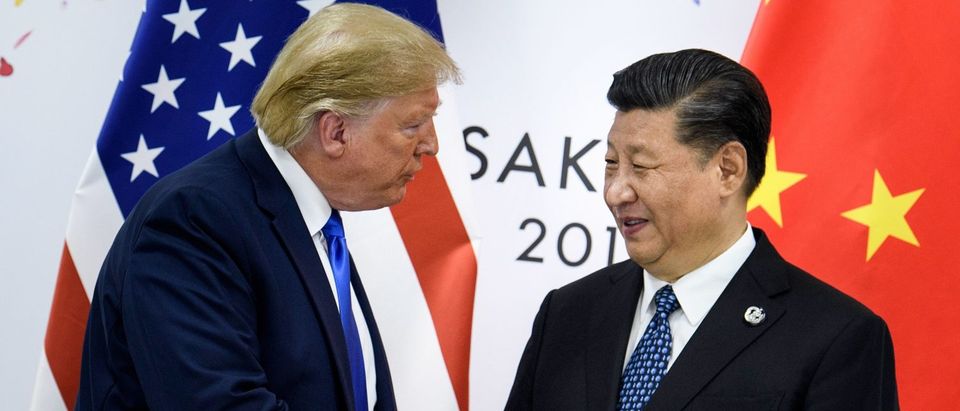The outcome of the 2020 presidential election hinges on whether President Donald Trump or China is blamed for coronavirus.
Currently, China is perceived as the culprit, which means Trump is winning and Democrats are losing. Unless Democrats can change this perception in the next six months, President Trump will win reelection.
It is axiomatic that bad economies make for bad presidential reelection chances. Since 1916, only three elected incumbents have lost reelection: Hoover, Carter, and Bush I. All three had annual real GDP shrink within a year of their election. Since 1930, only one president has overcome this: Truman in 1948.
Normally, presidents own the economy and the economy owns the president. However, this year is anything but normal. America’s economy has fallen off a cliff in 2020’s first quarter, but the president has not.
Coronavirus is the definitional black swan event. It is simultaneously a pandemic and pan-economic occurrence. In living memory, no one has seen its equal.
While it is impossible to know how coronavirus and its impact will finally impact November’s vote, what we do know now is that Trump’s public support is stable. To appreciate the magnitude of this president’s political resilience, compare coronavirus’ impact to its closest economic equivalent.
Last Friday’s April job report put unemployment at 14.7 percent, the highest level since the Great Depression. By May of 1932, the incumbent, President Hoover, was already guaranteed a landslide defeat. This was despite winning a landslide victory just four years earlier — a far cry from Trump’s 2016 squeaker. Yet Trump is approximately where Obama was at this point in his 2012 race — despite Obama having a stabilized economy and no coronavirus.
The defining difference between 1932 and 2020 is blame. No one could precisely pinpoint the Great Depression’s origin, so following the pattern of presidential economic responsibility, it fell to Hoover — and Hoover with it.
Today, there is no problem locating coronavirus’s origin: China. That also means the blame has not gone to Trump.
There is ample and inescapable reason to blame China. It started there, it was not contained there and it was covered up there. China’s culpability in its origin is yet to be fully determined; however, its fault in the other two is undeniable — the only question is the extent of its fault.
The result has been a global pandemic that continues to lay waste to societies and economies. America is far from its only victim, just one among many victimized by China.
Looking ahead to November, Democrats must flip the blame, which now resides with China, to President Trump in order to have a chance. They are now alleging a lack of preparedness. However, it is a tough sell.
China is clearly culpable. Also, China was already highly mistrusted by most Americans even before coronavirus. The Democrats’ sales pitch is further undercut by their presidential campaign’s own extremism. Pushing for significant political upheaval at a time of societal and economic turmoil is not an easy sell.
Another Democrat problem is their salesman. Biden has been anything but convincing that he would be capable of handling the presidency, let alone coronavirus.
Finally, there are growing questions about the cure itself. Many are now questioning whether the economy’s shutdown is inflicting additional injury, rather than alleviating that of the virus.
It is not that coronavirus has not hit America hard. Objectively, the damage is more than enough to doom a presidential re-election. But for Democrats, it is that it has not struck Trump. Unless they can change that significantly, November will strike them.
J.T. Young served under President George W. Bush as the director of communications in the Office of Management and Budget and as deputy assistant secretary in legislative affairs for tax and budget at the Treasury Department. He served as a congressional staffer from 1987 through 2000.


